At some point, we wanted to know for sure. Specifically, what the deal was with the fecal water and the zeolite.
Many horse owners report how well their horses recover from diarrhea with zeolite – we at Steinkraft have also gathered many such experiences over the years. But at some point, that wasn't enough for us anymore. We wanted to understand more deeply: What exactly happens in the horse's gut? And what does science actually say about it?
That's why we did our research – thoroughly, carefully, with an open heart and a keen mind. We sifted through specialist articles, studies, dissertations, and practical experience, not only concerning horses, but also cattle, pig, and poultry farming. Because wherever the gut is out of balance, zeolite has been used successfully for years.
Here you will find the results of this search: a collection of scientifically proven findings on how zeolite works in the digestive tract – in binding toxins, protecting the mucous membranes, stabilizing stool consistency and promoting a healthy intestinal flora.
Because when it comes to our horses, it's not just about feeling – but also about sound knowledge.
What is diarrhea – and what makes it so special?
Watery stool is not the same as diarrhea. While diarrhea involves completely liquefied feces, horses with watery stool usually have formed, apple-like droppings – but in addition, a brownish fluid leaks from the anus. And sometimes in surprising amounts. It's not an emergency, but a subtle sign: something is wrong.
Diarrhea is often an expression of a chronic imbalance – be it due to stress, feeding errors, poor hay quality, dental problems, lack of exercise or microbial shifts in the intestine.
How does zeolite work in the horse's intestines?
Zeolite is a natural volcanic rock with a special property: its crystalline structure acts like a sponge. It can bind excess acids, toxins, fermentation gases, mycotoxins, and even heavy metals. At the same time, it soothes mucous membranes, has an antioxidant effect, and supports the restoration of internal balance. We know all this from Prof. Dr. Karl Hecht.
What do studies and scientific articles say about the effects of zeolite?
The body of research on zeolite in horses is still young – but there is a wealth of data from livestock farming (calves, piglets, poultry) that allows for conclusions to be drawn.
Here is a scientifically sound overview - I have organized the studies into 4 subject areas: pollutant binding, intestinal mucosa, stool consistency, intestinal flora.
1. Toxin binding in the intestine
Sources:
-
Cerbu et al. (2020) studied 80 calves with diarrhea. One group received an additional 2% clinoptilolite in their feed. After just 8 days, stool consistency had significantly improved, and the frequency of diarrhea decreased considerably. Furthermore, body weight remained more stable than in the control group.
Source: DOI: 10.3390/ani10122284 -
Katsoulos et al. (2016) analyzed dairy cows fed aflatoxin-contaminated feed. The addition of 1% clinoptilolite significantly reduced the aflatoxin M1 content in the milk – evidence of effective toxin binding in the digestive tract.
Source: DOI: 10.1016/j.anifeedsci.2016.03.001 -
Ortatatli et al. (2005) conducted a histological examination of chickens exposed to aflatoxins. The group treated with zeolite showed less liver damage and better overall health.
Source: Research in Veterinary Science, 78(1):61–68
2. Soothing the intestinal mucosa
Sources:
-
Wu et al. (2013) administered zeolite to broiler chickens. The results showed significantly reduced inflammatory markers (e.g., TNF-α), increased villus height in the small intestine, and higher levels of antioxidant enzymes such as glutathione peroxidase. This suggests a regenerative effect on the intestinal mucosa.
Source: Poultry Science 92:684–692 -
Valpotić et al. (2016) examined piglets fed with 1% clinoptilolite. The animals exhibited more intraepithelial lymphocytes and a more stable mucosal structure. In addition, the proportion of pathogenic bacteria in the feces decreased.
Source: Veterinarni Medicina 61(6):317–327 -
Bartko et al. (1995) : In a large-scale study with 2,223 calves, the addition of 5% zeolite to the feed reduced the diarrhea rate from 68.7% in the control group to 18.0% in the zeolite group. Furthermore, the mortality rate decreased from 4.7% to 1.3%.
3. Stabilizing stool consistency
Sources:
-
Cerbu et al. (2020) (see above): In addition to toxin binding, the study also confirmed a measurable improvement in stool texture – without the use of medication. The researchers We conducted an in vivo study on 80 milk-fed calves with diarrhea. One group received micronized clinoptilolite powder (5 µm particle size) in their feed for 8 days; other groups served as a control (antibiotic, tannin extract, untreated).
Result: After just one week, the prevalence of diarrhea decreased significantly in all treated groups , including the zeolite group. While 100% of the calves had diarrhea at the beginning, at the end of the observation period the rate of persistent diarrhea in the zeolite group was significantly reduced (similar to the calves treated with antibiotics). The authors assess clinoptilolite as a safe and effective agent for the symptomatic treatment of diarrhea in calves and as a possible alternative to reduce antibiotic use. -
Sadeghi & Shawrang (2008) conducted a double-blind study on newborn Holstein calves. Calves that received colostrum with zeolite suffered less frequently from diarrhea, had a lower frequency of watery feces, and better daily weight gains.
Source: Livestock Science 113:307–310 -
Norouzian et al. (2010) administered 3% zeolite to lambs for 30 days. Result: significantly firmer fecal matter, fewer E. coli bacteria in the feces, better weight gain.
The researchers examined newborn lambs that received varying concentrations of zeolite in their milk replacer over a period of six weeks. Lambs receiving a 3% clinoptilolite supplement exhibited firmer stool consistency and less severe diarrhea than the control group. At the same time, these lambs gained weight better (+weight gain) and no negative effects on blood count or health parameters occurred. The authors concluded that zeolite can reduce diarrhea-related losses and improve performance in lamb rearing.
Source: Small Ruminant Research 91:170–173 -
Valpotić et al. (2016) (see above): In the same piglet study, the average diarrhea score decreased significantly compared to the control group. In the previously mentioned study of 40 weaned piglets, a feed additive of 0.5% clinoptilolite resulted in significantly fewer diarrhea symptoms . The total diarrhea score (over 14 days after weaning) was significantly lower in the zeolite group than in untreated piglets. In addition, the bacterial load in the small intestine was reduced (lower total bacterial count in the jejunum). This suggests improved intestinal hygiene. Interestingly, another study (Song et al., 2014, J. Anim. Sci. 92:173–182) also found that experimentally induced diarrhea in piglets was alleviated by clinoptilolite – the animals had higher serum IgG levels and lower E. coli excretion, although weight gain remained unchanged. .
These consistent results support the idea that zeolite binds excess fluid in feces and stabilizes intestinal function. Applied to horses, this means that a suitable zeolite supplement could help thicken watery feces and normalize overall fecal consistency.
4. Promoting a healthy gut flora
Sources:
-
Wu et al. (2013) (see above): In addition to mucosal benefits, a favorable shift in the microbiota was also observed: less E. coli, more lactobacilli in the gut.
-
Song et al. (2014) conducted a randomized study with 96 piglets. The zeolite group showed not only an increase in blood IgG (improved immune status) but also a significant reduction in pathogenic bacteria.
Source: J. Anim. Sci. 92:173–182 -
Lojkić et al. (2017) analyzed over 70 sources in their review article. They describe zeolite as naturally antidiarrheal, growth-promoting, pH-stabilizing, and immunomodulating. (Periodicum Biologorum 119:159–172)

FAQs:
Here are the most important questions and answers about the effects of zeolite on diarrhea , the available studies, application and dosage.
❓How does zeolite work in the horse's intestines?
Zeolite binds excess fluid, toxins, and metabolic waste products in the intestines. This makes the stool firmer and can reduce the typical loose stools. At the same time, zeolite supports the natural intestinal environment by stabilizing the pH value and relieving the burden on the intestinal flora.
❓Which studies prove the effectiveness of zeolite for diarrhea?
Several scientific studies show that zeolite can improve stool consistency and significantly reduce diarrhea. Researchers have observed that zeolite, due to its high binding capacity, neutralizes toxins and binds excess fluid. Positive effects have been documented, particularly in horses with chronic diarrhea.
❓How quickly does zeolite take effect in cases of diarrhea?
Many horse owners report that the consistency of their horse's manure improves after just a few days. Studies indicate that a noticeable effect usually occurs within 1–2 weeks. However, the exact duration depends on the individual horse, its diet, and the underlying causes of the loose manure.
❓Is zeolite also useful for chronic diarrhea?
Yes, zeolite can be a valuable aid, especially in cases of chronic loose stool. Because it binds toxins and regulates excess fluid, many horse owners report a lasting improvement. Studies also indicate positive effects in cases of persistent loose stool.
❓ What dosage of zeolite is recommended for diarrhea?
The dosage depends on the horse's weight. In practice, a daily amount of approximately 10–20 g per 100 kg of body weight has proven effective. For an average large horse, this equates to 50–100 g of zeolite daily. It is recommended to start with a smaller amount and gradually increase it.
❓What do studies report compared to the experiences of horse owners?
Studies show the measurable effect of zeolite on gut health and stool consistency. Horse owners supplement this picture with numerous positive testimonials: less loose stool, better feed conversion, and an overall more stable digestive tract. Science and practice confirm each other here.
👉 Our experiences from everyday stable life show how zeolite works in practice.
Conclusion: What we know today – and why this is just the beginning
Diarrhea is a complex issue. Zeolite is not a cure-all or miracle cure – but a powerful, natural aid on the path to balance. Studies show that it can bind, soothe, and stabilize. And that's precisely why it's worth taking a closer look.
Because when it comes to our horses, it's not just about feeling – but also about sound knowledge.
And yet, every horse remains an individual.
However convincing many scientific findings may be, they do not replace looking at the individual animal. Diarrhea is not a symptom that can be "gotten rid of" with a single remedy. It is often an interplay of factors such as husbandry, diet, stress, gut flora, and sometimes also internal history.
Zeolite is not a miracle cure. But it is a powerful, natural ally.
It can relieve stress on the intestinal environment, stabilize digestion, and gently support the organism. And that's exactly what many horses need: inner grounding, inner peace – and a person who listens.
The studies confirm what many have already felt: nature works.
Quiet, deep, and sometimes more complex than you might think.
👉 Here you'll find the product of the month and a good overview of all STEINKRAFT product lines.
👉 Here you can find all STEINKRAFT products at a glance - directly in the shop







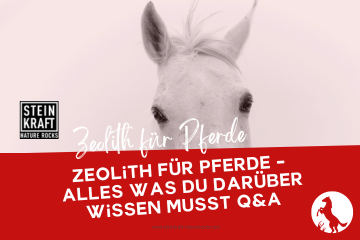
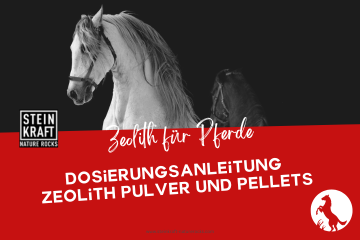



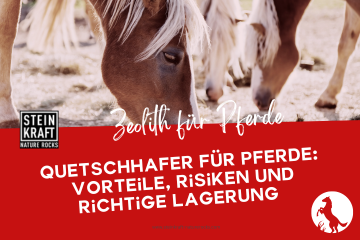

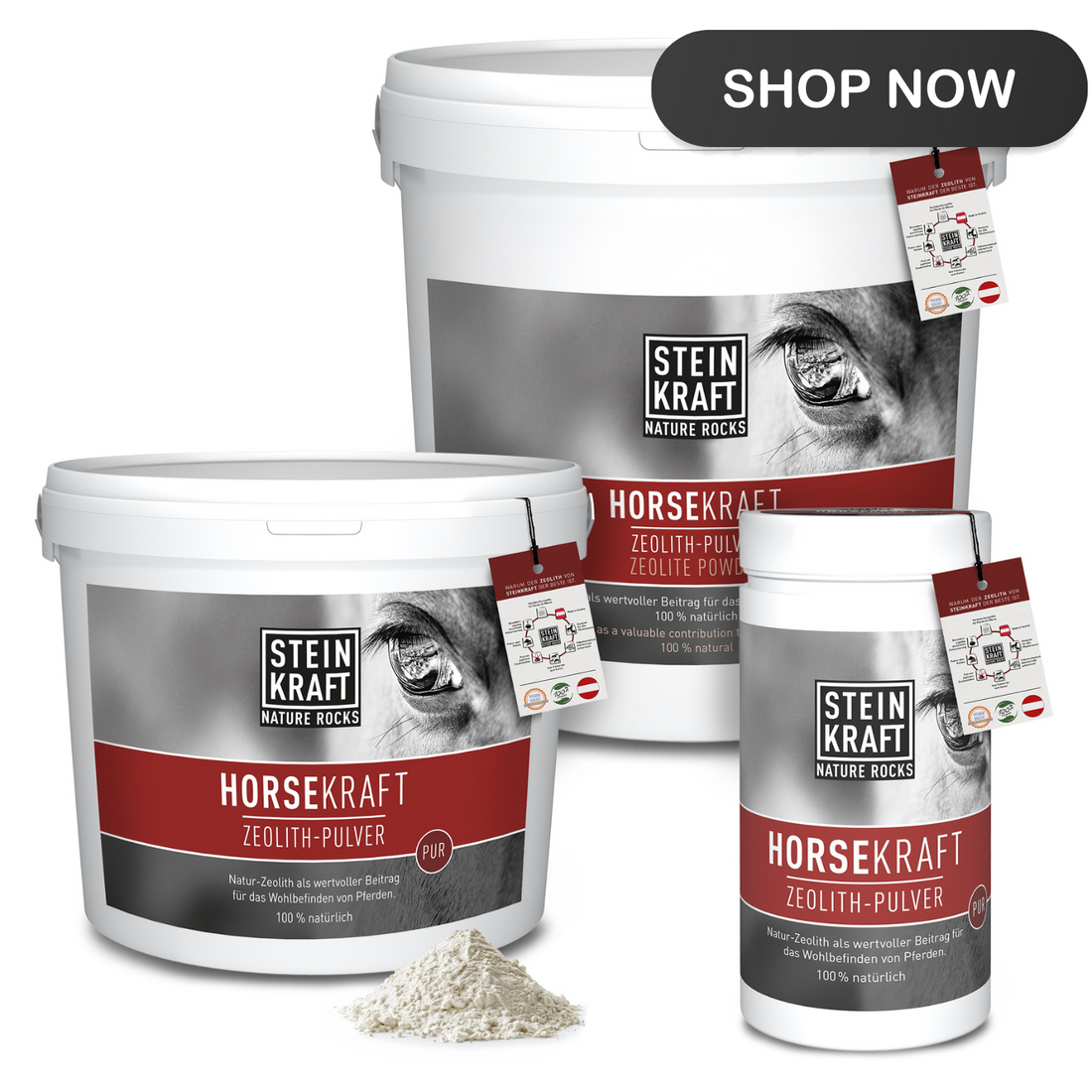
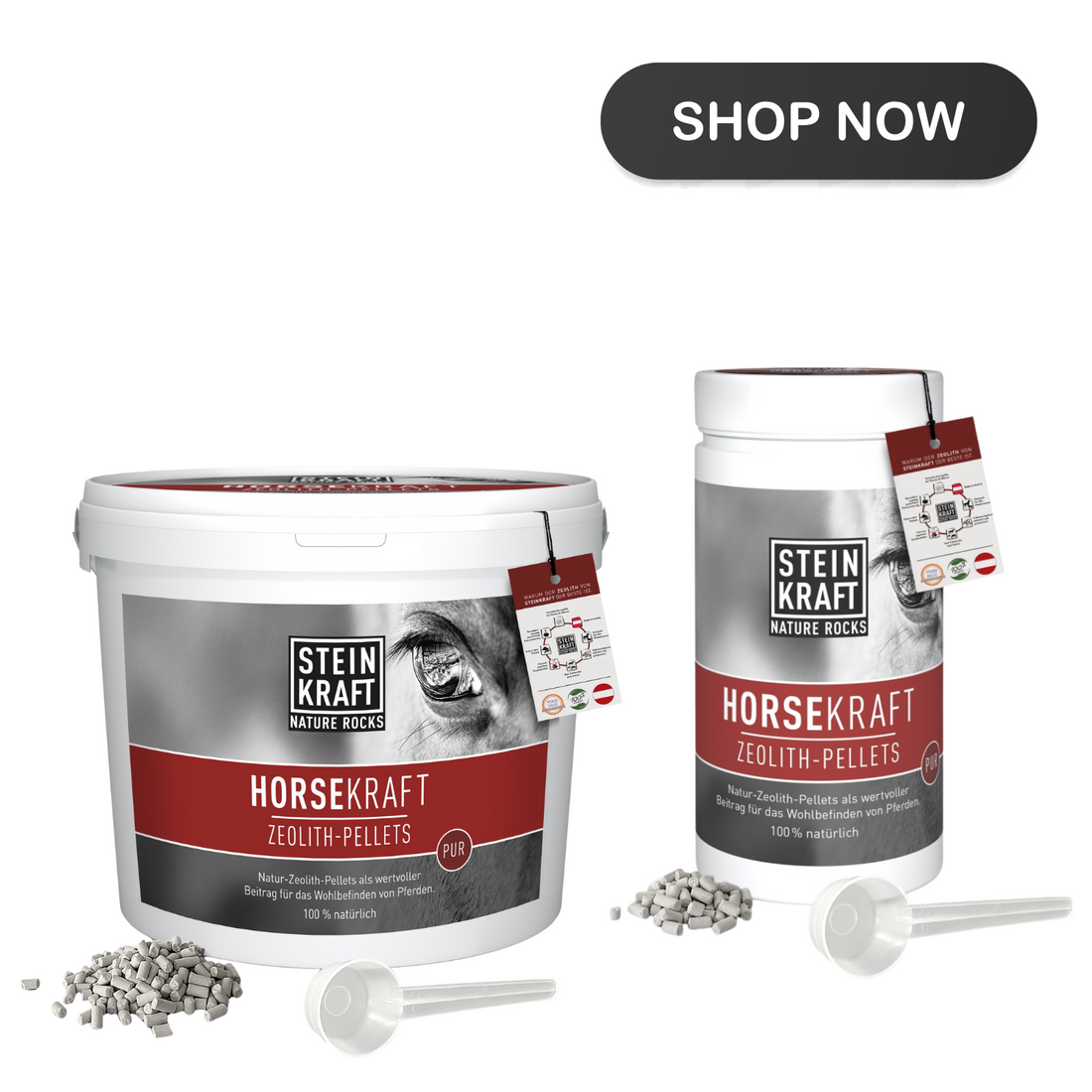
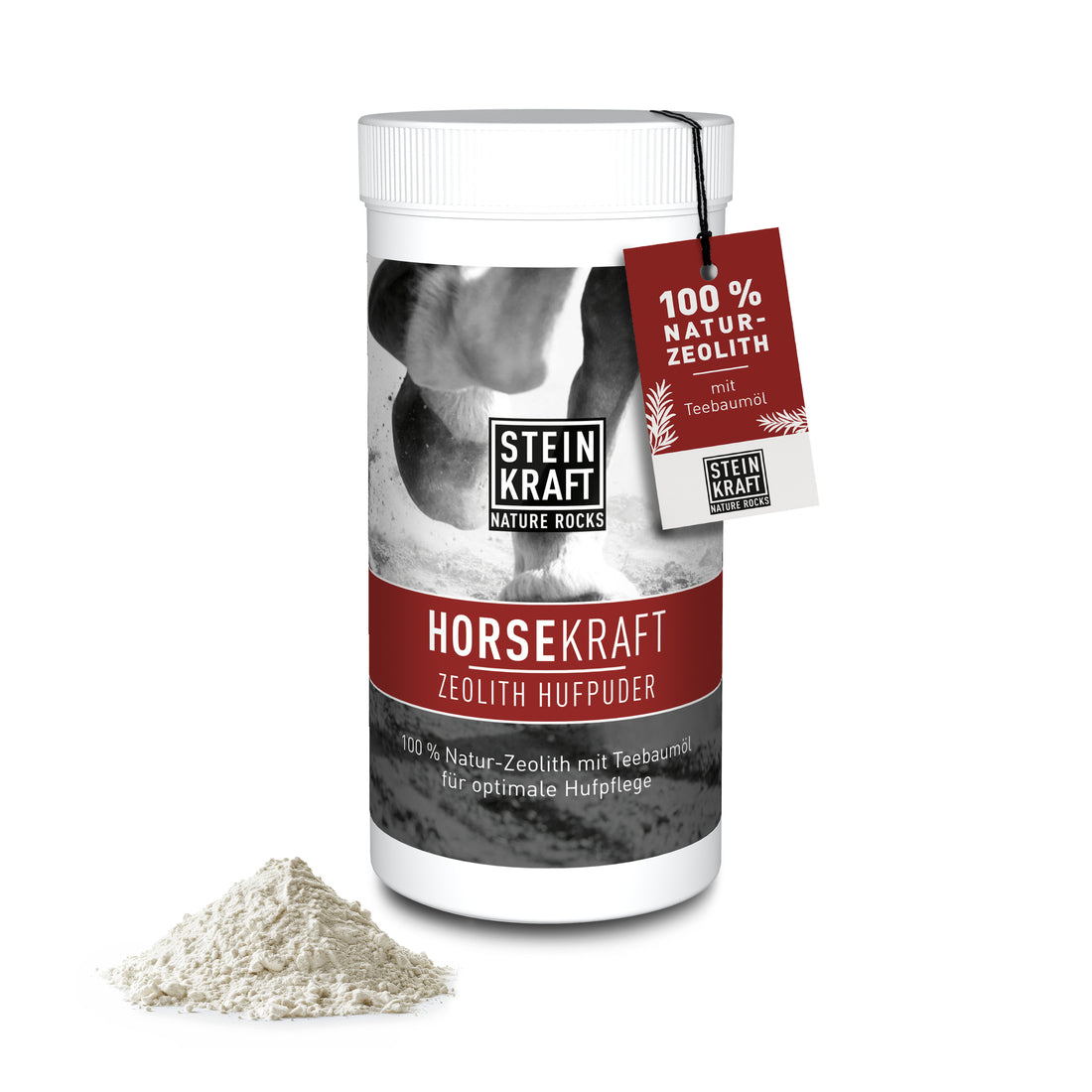
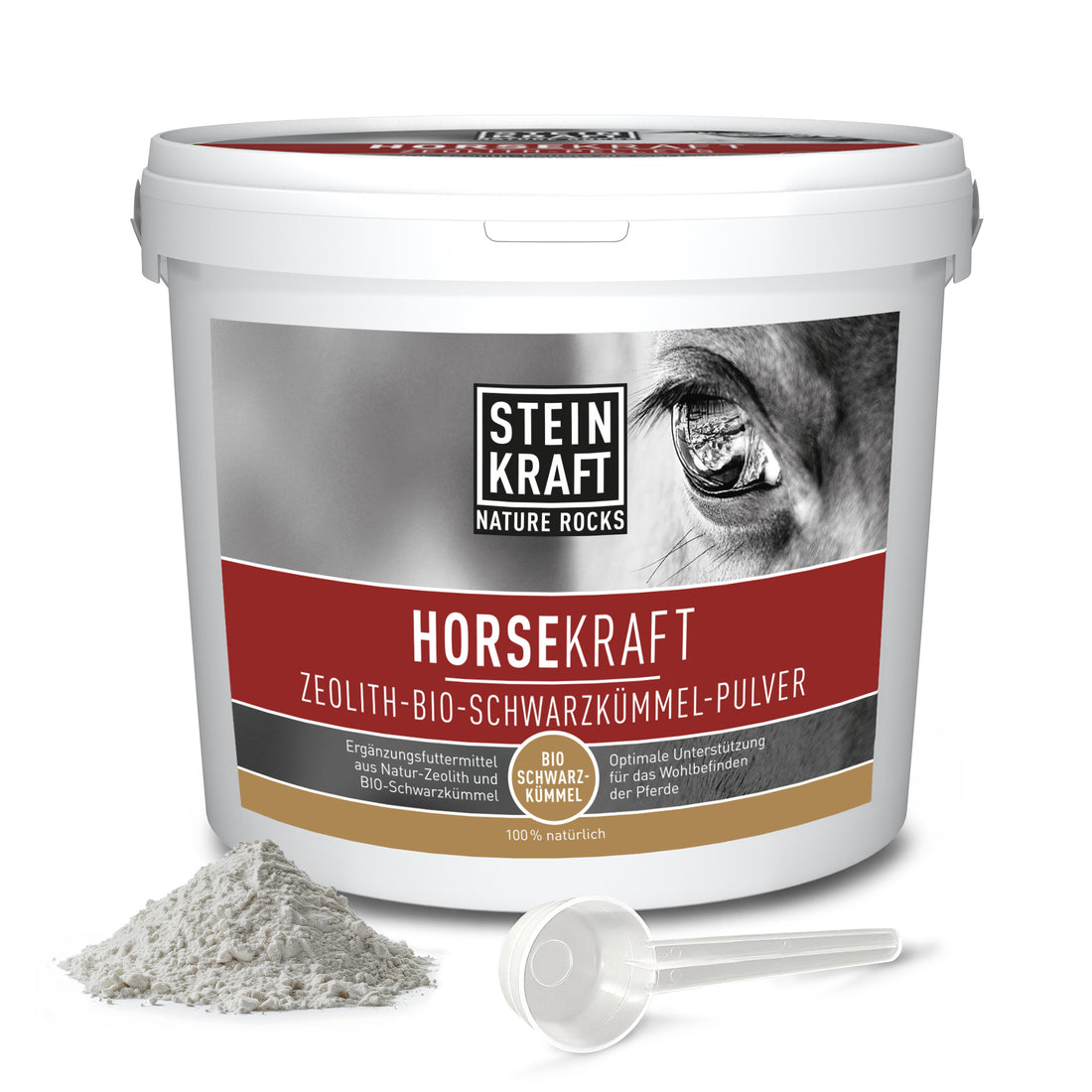
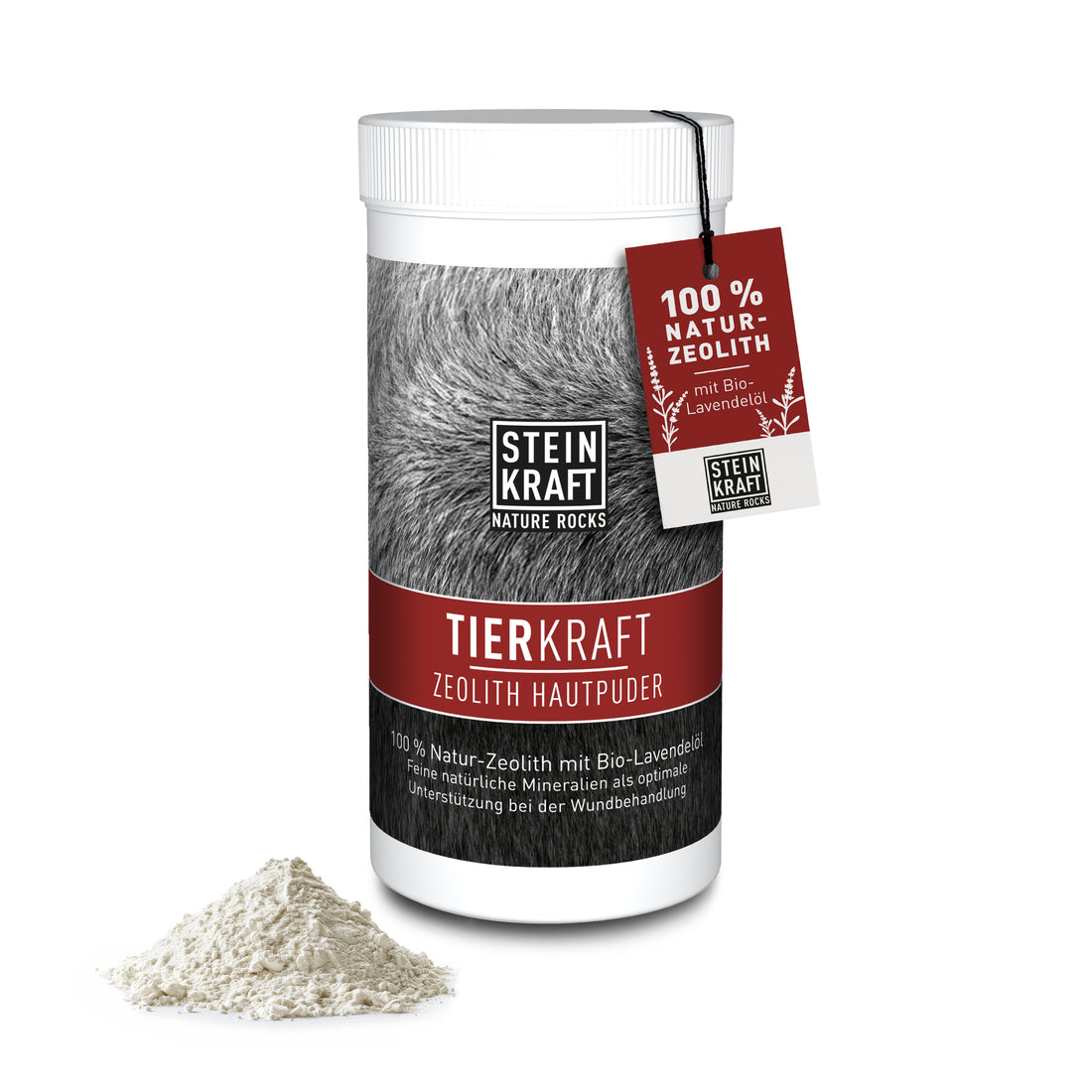
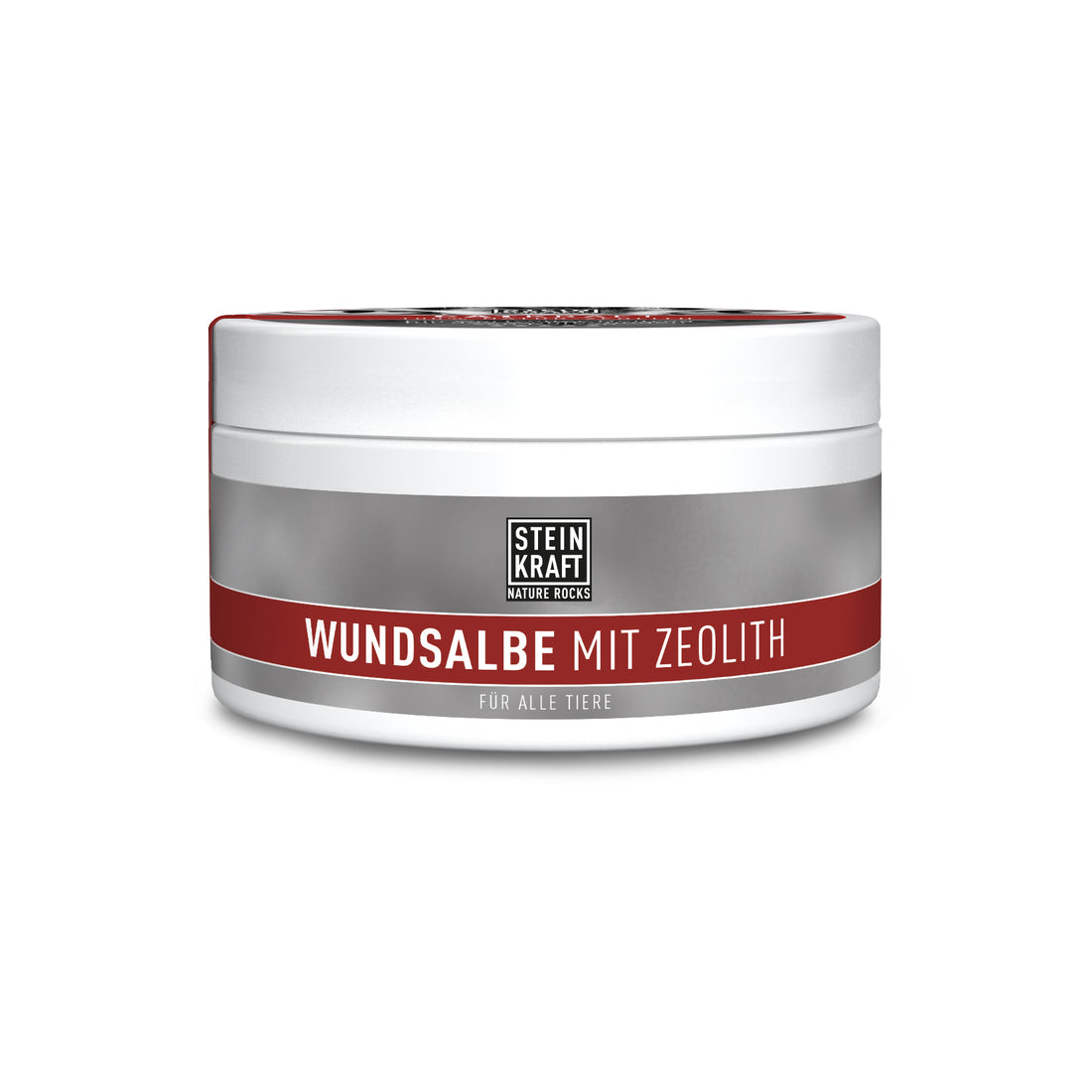
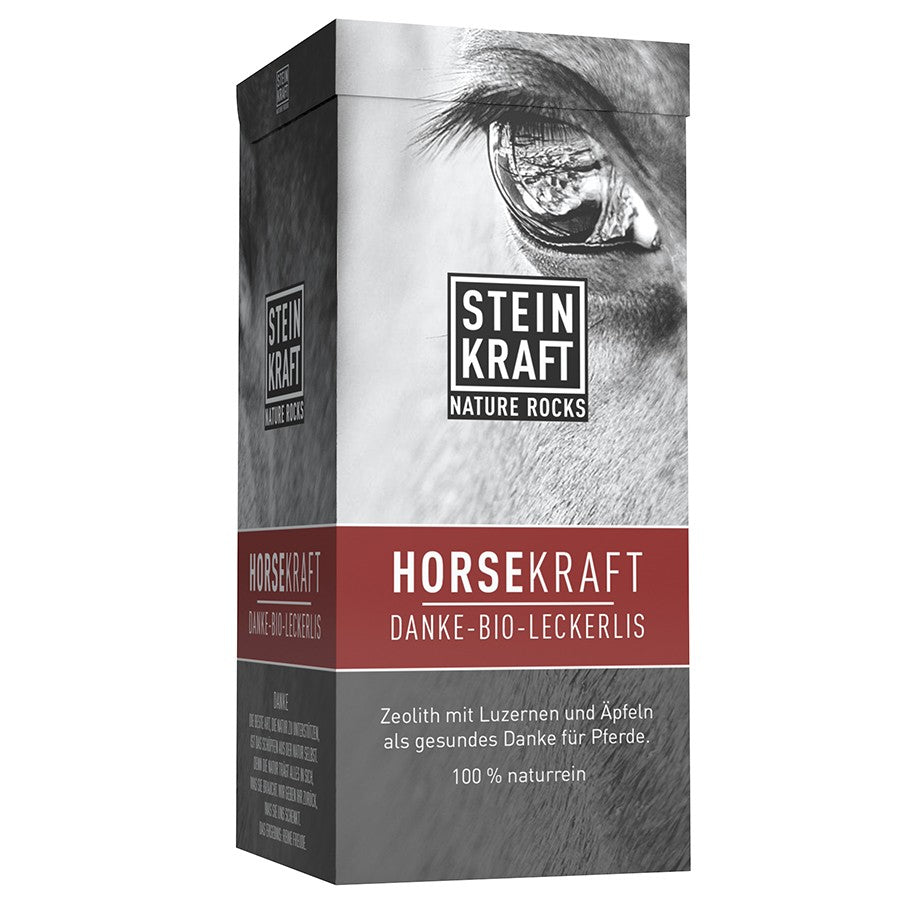
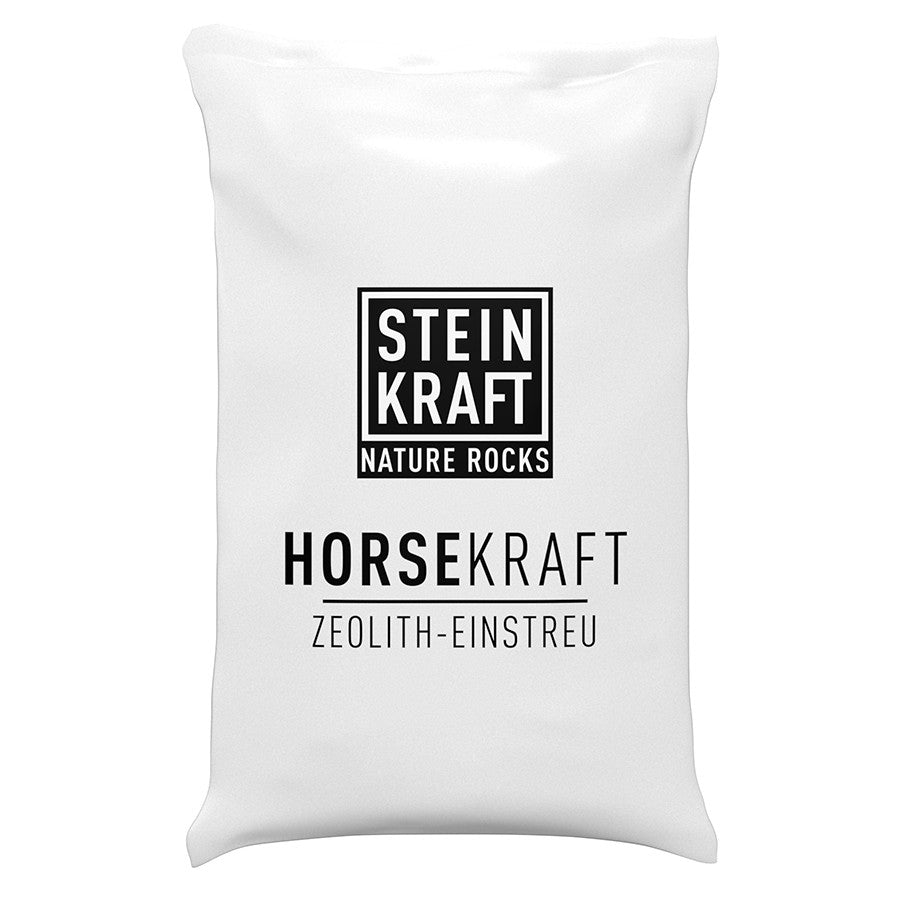

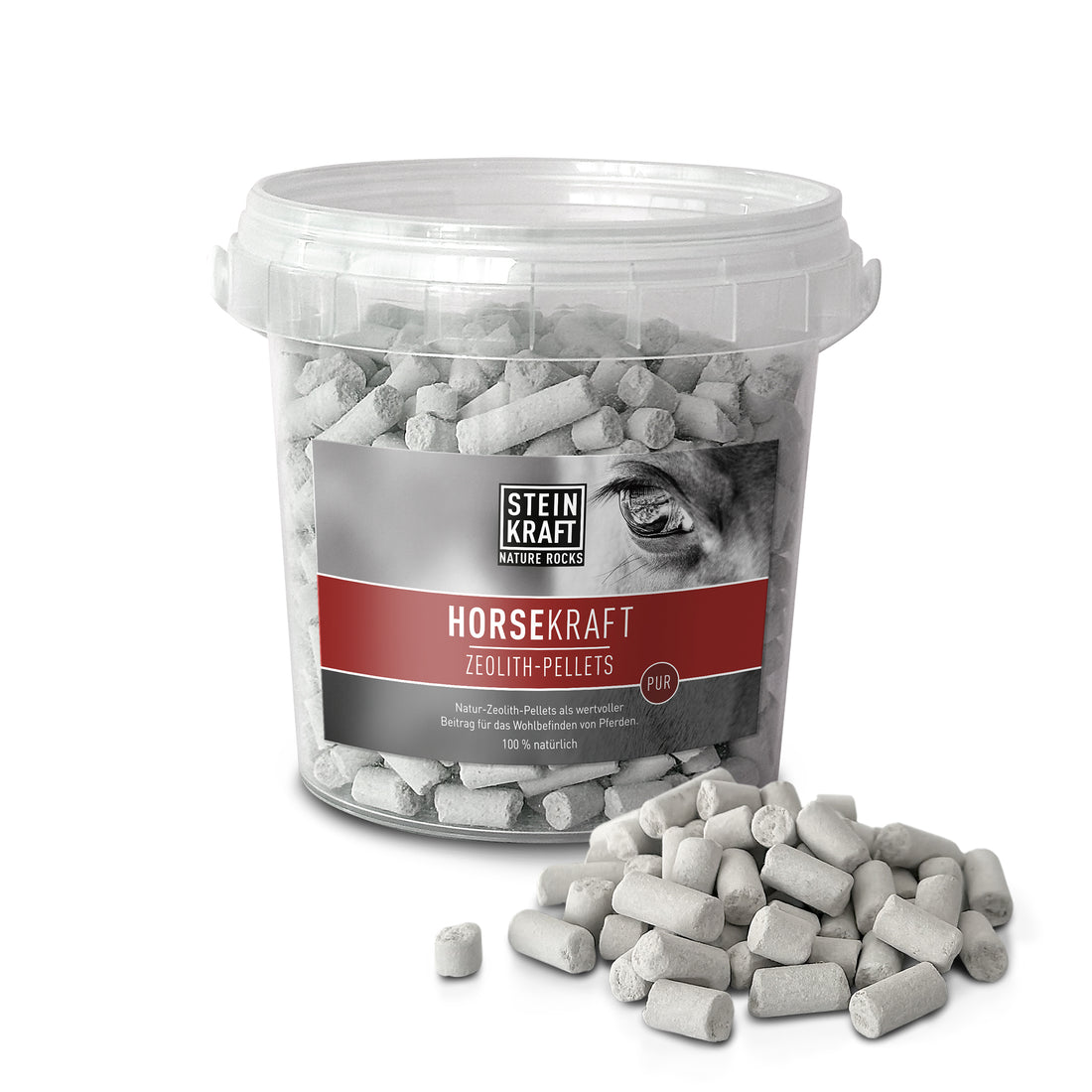
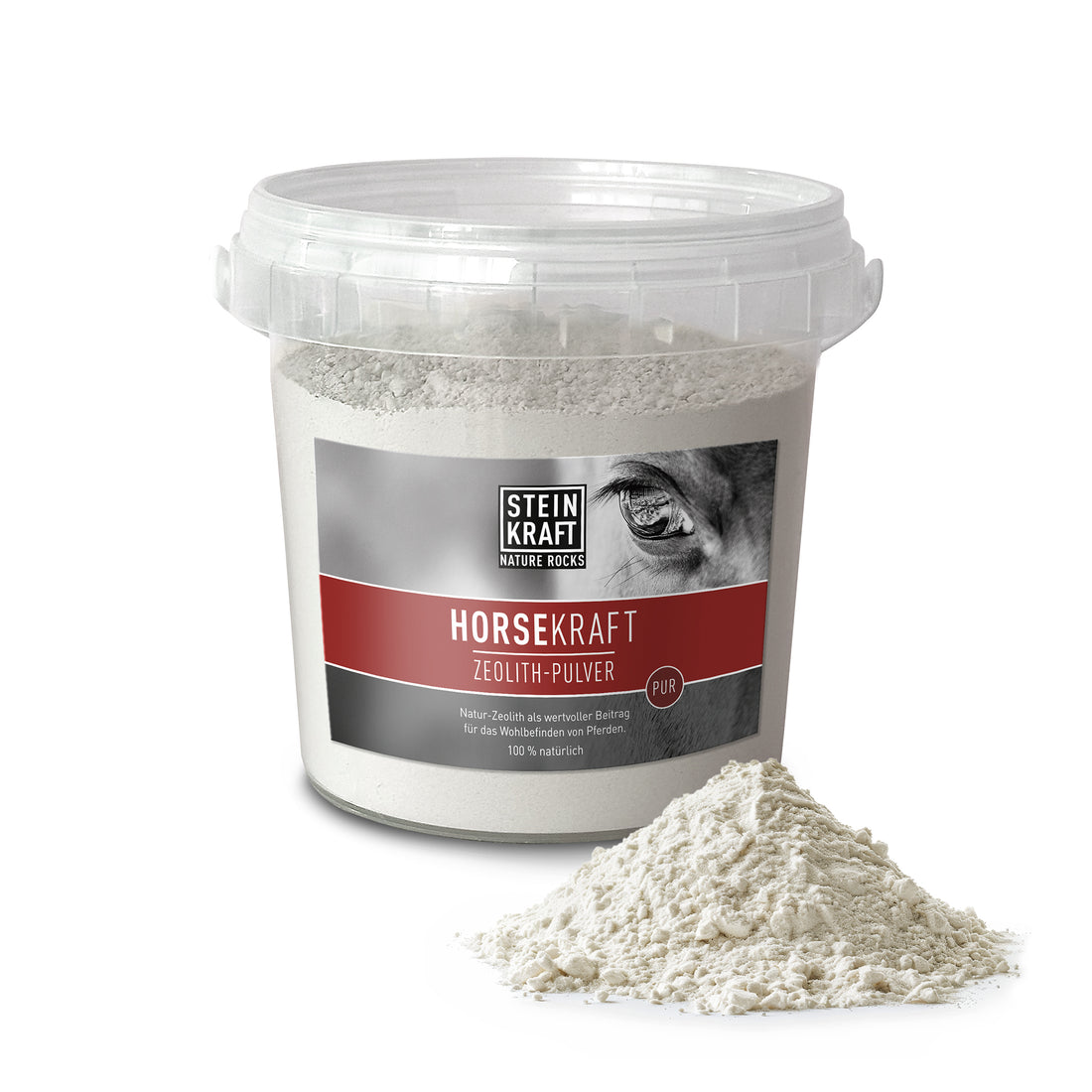
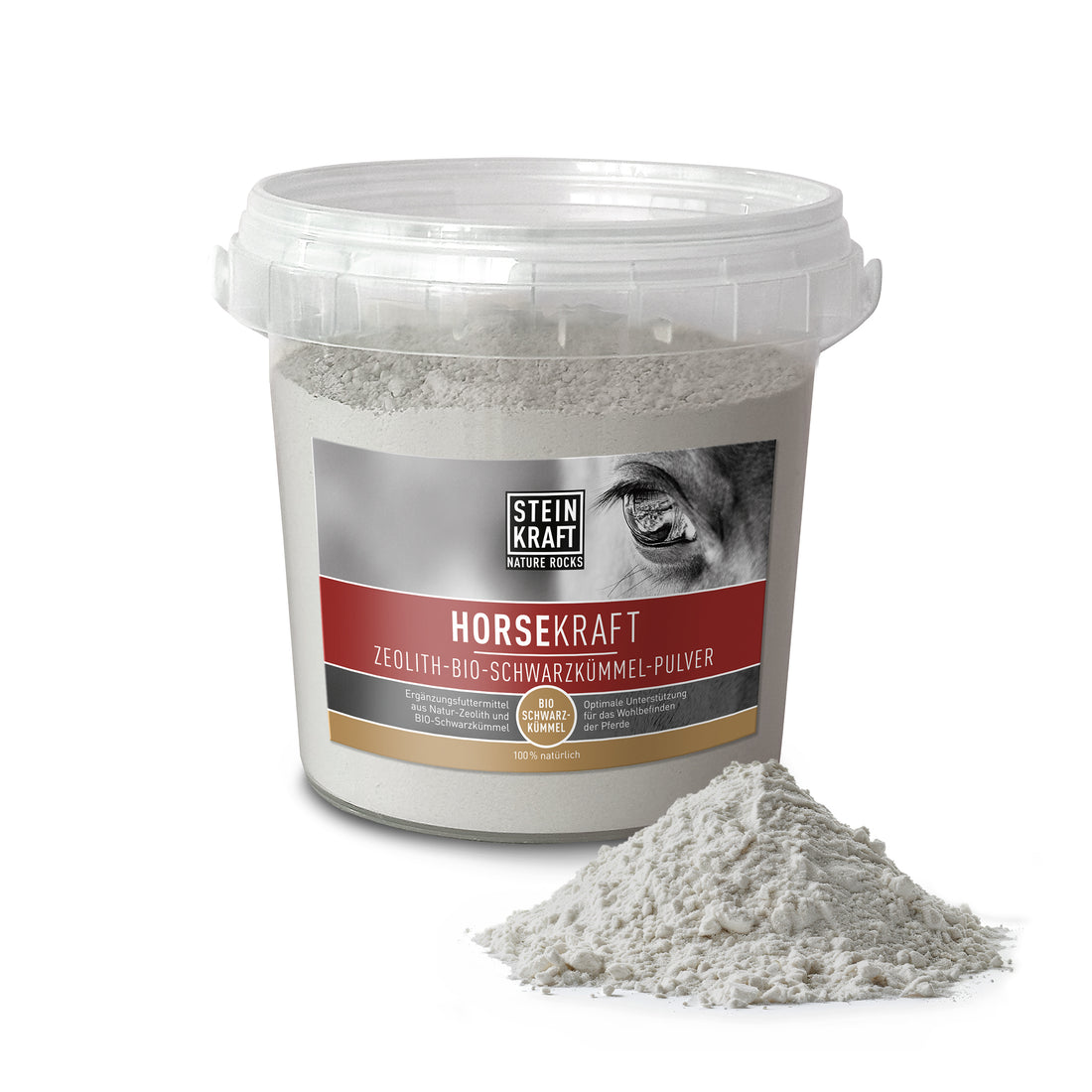





1 comment
TOLLE tolle Liste an Wirksamkeitsstudien. So sehr dankbar!!!!! 🧡